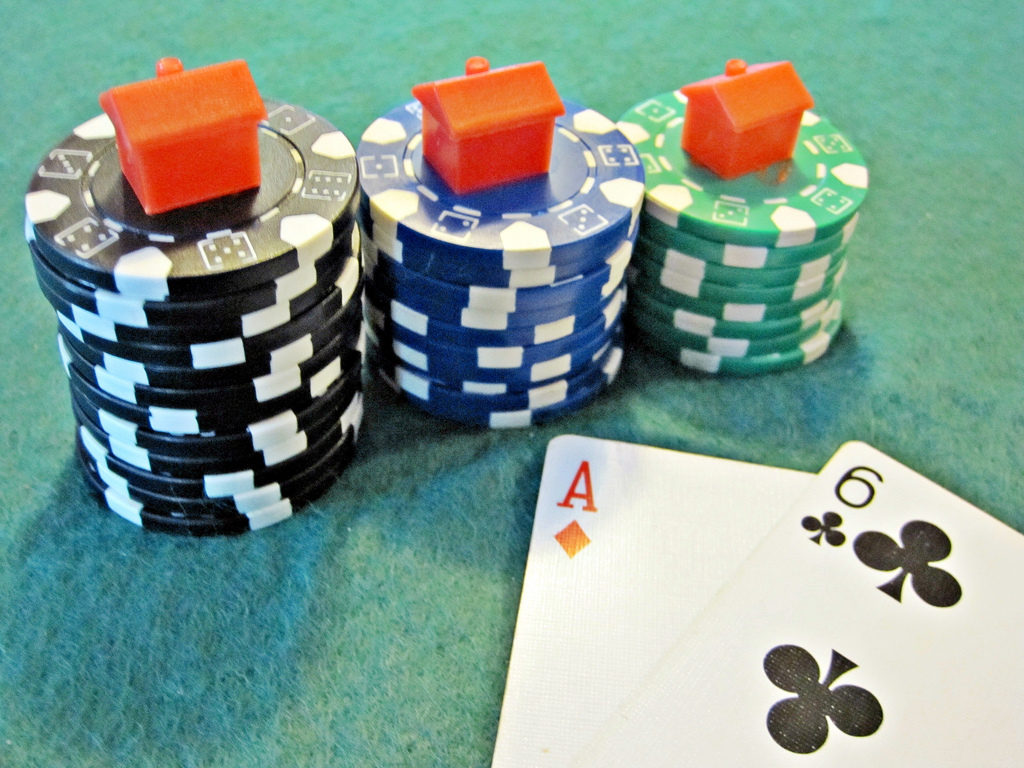Following last year’s “Blue Wave” in the Virginia General Assembly, with Democrats reclaiming 15 seats from majority Republicans ending in a razor-thin 51-49 GOP caucus, gambling in the Commonwealth and the legislation to allow it has resurfaced. However, as the state progresses from its highly conservative outlook on gambling, teamed with the federal recognition of Virginia’s Pamunkey Indian Tribe, casino-style betting and gaming seems to be somewhat of a newly-bipartisan issue.
As the 2019 session on Bank Street in Richmond is set to convene in early January, the introduction of slot machines, the legalization of sports betting, casino gambling, and the expansion of the Old Dominion tradition of horse racing could be coming in the near future.
Governor Ralph Northam (D) has been a proponent of reopening horse racing tracks in his past legislative career, as well as during his current tenure in Virginia’s executive branch. After Speaker of the House Bill Howell’s retirement last year, ending a 15-year reign in the lower chamber, the typically anti-gambling GOP majority state legislature has moved closer towards the expansion of betting, citing economic reasons. For example, House Bill 1609, introduced by Delegate Michael Webert (R-Rappahannock), would allow horse racing and “pari-mutuel” wagering.
“The bill defines historical horse racing as a form of racing that creates pari-mutuel pools from wagers placed on previously conducted horse races and is hosted at (i) a racetrack owned or operated by a significant infrastructure limited licensee or (ii) a satellite facility that is owned or operated by (a) a significant infrastructure limited licensee or (b) the nonprofit industry stakeholder organization recognized by the Virginia Racing Commission and licensed to own or operate such satellite facilities. The bill establishes retainage fees similar to those already in existence for horse racing and provides for the Commission to promulgate emergency regulations.”
The legislation passed though the General Assembly in late February, with the governor signing it into law in April.
In 2017, a bill to legalize poker as a “game of chance for charitable gaming purposes” was proposed State Senator Louise Lucas (D-Portsmouth), which passed the Senate with then-Lieutenant Governor Northam’s tiebreaking vote, but died in House General Laws subcommittee. Nevertheless, a similar bill was carried earlier this year by Delegate Glenn Davis (R-Virginia Beach).
House Bill 1509 would have allowed the Charitable Gaming Board (CGB) regulate Texas Hold’em poker events in Virginia.
“Allows a qualified organization to conduct Texas Hold’em poker events in conjunction with its charitable gaming activities. The conditions under which a qualified organization may manage, operate or contract with operators of, or conduct Texas Hold’em poker games and tournaments shall be prescribed by the Charitable Gaming Board.”
Though, similar to what happened one year ago, the legislation was left in the General Laws subcommittee.
Two other bills in the General Assembly this year, both proposed by Democratic legislators, provide that sports gambling in Virginia should serve as a benefit to higher education and transportation infrastructure.
Senate Bill 424, introduced by State Senator Chap Petersen (D-Fairfax City), would create a state authority to regulate the activity, with proceeds dedicated to reducing tuition at Virginia community colleges. It would establish the Virginia Gaming Commission to control charitable gaming in the Commonwealth, which is currently under the authority of the Department of Agriculture and Consumer Services and the CGB.
“The bill establishes the Virginia Gaming Fund as a special fund to be used solely for (i) administering and enforcing charitable gaming laws and regulations and fantasy contest registrations, (ii) educating charitable organizations and players, and (iii) promoting charitable gaming in Virginia. The bill also requires the Commission to revise the fees levied by it for issuing charitable gaming permits and supplier registrations, or renewal thereof, so that the fees are sufficient to cover expenses but not excessive.”
Last week, Delegate Mark Sickles (D-Fairfax) pre-filed House Bill 1638 for next year’s legislative session, which would have sports betting fall under the oversight of the state lottery. According to a report from Forbes, the bill identifies a sports betting platform as “a website, app, or other platforms accessible via the Internet or mobile, wireless, or similar communications technology that sports bettors use to place sports bets.”
An analysis suggests that 95 percent of the revenue would back research projects at state universities by means of the “Major Research Project Sub-Fund”, with a study conducted by Oxford Economics projecting $380 million in net revenue annually. They claim this would “mean[ing] that the 15% tax would generate close to $60 million each year before the state lottery receives their 2.5%.”
One area in the Commonwealth that needs extra attention insofar as state funding is concerned is public education infrastructure. Virginia has funded K-12 public education through the state lottery system, which has brought in around $9 billion, with record profits topping $600 million in 2018. If the General Assembly repeals Virginia’s existing ban on casino gambling, a potentially large coffer could be opened to fund not only higher education or K-12 education, but other areas that need vital funding – transportation infrastructure, combating the opioid epidemic, school safety measures, countering human trafficking, creating a larger law enforcement presence towards gang violence, more affordable healthcare, among many others.

